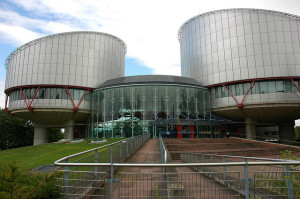- BY Mark Symes

Tarakhel: another blow to the Dublin system
THANKS FOR READING
Older content is locked

A great deal of time and effort goes into producing the information on Free Movement, become a member of Free Movement to get unlimited access to all articles, and much, much more
TAKE FREE MOVEMENT FURTHER
By becoming a member of Free Movement, you not only support the hard-work that goes into maintaining the website, but get access to premium features;
- Single login for personal use
- FREE downloads of Free Movement ebooks
- Access to all Free Movement blog content
- Access to all our online training materials
- Access to our busy forums
- Downloadable CPD certificates
In Tarakhel v Switzerland [2014] ECHR 1185 (04 November 2014) the Grand Chamber of the European Court of Human Rights (“ECtHR”) has issued its long-awaited decision as to the lawfulness of returning asylum seekers to Italy, a subject that has engaged the refugee lawyers of Europe for some years. The ECtHR rules that individualised enquiries leading to individual assurances will be necessary in the case of child returnees including families with children.

The case in question involves the return of a family with children, a relatively unusual scenario given that most asylum seekers tend to be travelling without family members. Nevertheless, the Court’s reasoning appears to have significantly broader ambit. Whilst at [114]-[115] the Court distinguishes circumstances in Italy from those in Greece, and indicates that there should be no general suspension on removal, they entertain
“serious doubts as to the current capacities of the system. Accordingly, in the Court’s view, the possibility that a significant number of asylum seekers may be left without accommodation or accommodated in overcrowded facilities without any privacy, or even in insalubrious or violent conditions, cannot be dismissed as unfounded.”
This finding endangers the ability of the UK’s Home Office to automatically certify a third country case as “clearly unfounded” absent evidence to show that the individual will be adequately accommodated.
The ECtHR rules that
“reception conditions for children seeking asylum must be adapted to their age, to ensure that those conditions do not create … for them a situation of stress and anxiety, with particularly traumatic consequences” [119].
This applies even when, as in the present case, the children seeking asylum are accompanied by their parents. As the ECtHR explains the necessary expectations for a child’s removal to be human rights-compatible, it adds that the requirement for the “special protection” of asylum seekers is a particularly important one “in view of their specific needs and their extreme vulnerability”: words that seem very encouraging for the vulnerable beyond children (one recalls that within the Common European Asylum System there is reference to “vulnerable persons such as minors, unaccompanied minors, disabled people, elderly people, pregnant women, single parents with minor children and persons who have been subjected to torture, rape or other serious forms of psychological, physical or sexual violence”).
For minors, it was “therefore incumbent on the Swiss authorities to obtain assurances from their Italian counterparts that on their arrival in Italy the applicants will be received in facilities and in conditions adapted to the age of the children, and that the family will be kept together.” And these assurances have to be cogent and verifiable: they would not be accepted “in the absence of detailed and reliable information concerning the specific facility, the physical reception conditions and the preservation of the family unit” [121].
Consistent with the approach of the UK’s Supreme Court in EM, the Grand Chamber does not view systemic failure as the only situation where the responsibility of the state wishing to return an asylum seeker to the responsible one under Dublin 2 , see [104]:
“the presumption that a Contracting State which is also the “receiving” country will comply with Article 3 of the Convention can therefore validly be rebutted where “substantial grounds have been shown for believing” that the person whose return is being ordered faces a “real risk” of being subjected to treatment contrary to that provision in the receiving country.”
The case featured an intervention by Advice on Individual Rights in Europe (“the AIRE Centre”), the European Council on Refugees and Exiles (“ECRE”) and Amnesty International, instructing barristers Raza Husain QC, Mark Symes, David Chirico, and Catherine Meredith.
[downloads ids=”17797″]
